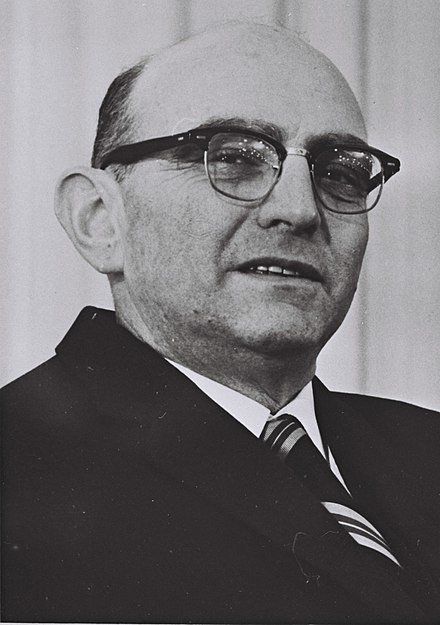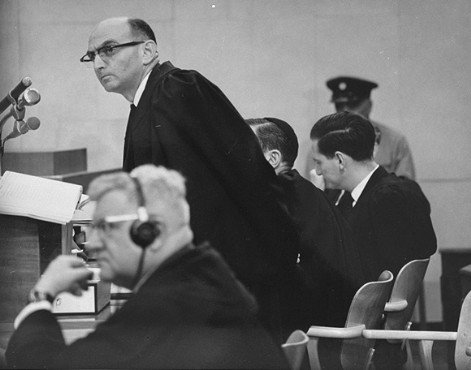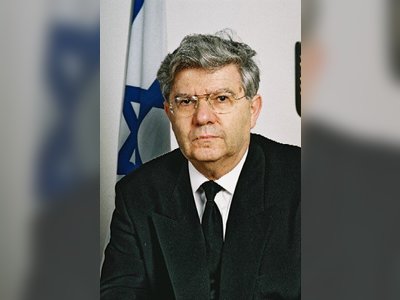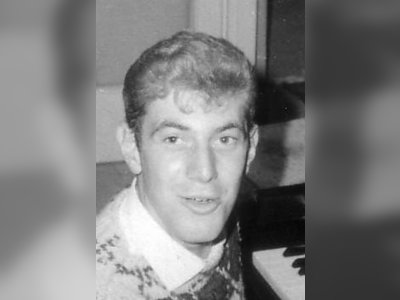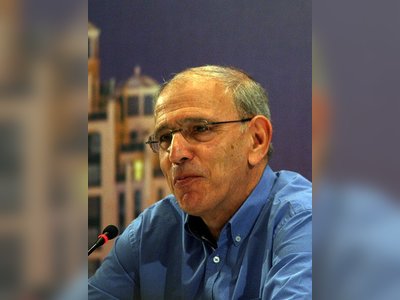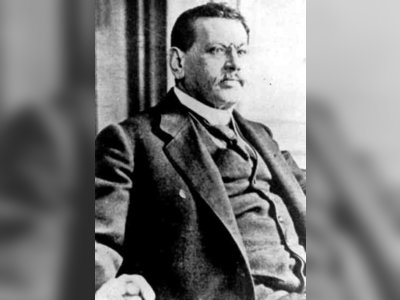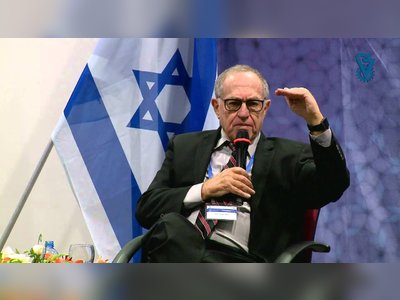Gideon Hausner
Was an Israeli lawyer and politician. He served as the legal advisor to the government, a member of the Knesset (Israeli parliament), and a minister in the Israeli government. He is best known for his role as the chief prosecutor on behalf of the State of Israel in the Adolf Eichmann trial.
Early Life:
Gideon Hausner was born in Lviv, then part of the Austro-Hungarian Empire but later annexed by Poland after World War I. He received his early education in a Hebrew elementary school. In 1927, his family left Poland, immigrated to the Land of Israel, and settled in Tel Aviv. His father was a member of the Polish Zionist organization and served as the secretary of Theodor Herzl for a period. Upon their arrival, Hausner's father was appointed as the Polish Consul in the Land of Israel.
Hausner attended the Herzliya Gymnasium and later joined the Haganah, a Jewish paramilitary organization. He pursued his academic studies at the Hebrew University, majoring in philosophy and attending the Mandate-era School of Law in Jerusalem. After marrying a fellow student, he resided in Jerusalem, where their daughter was born.
In the War of Independence, Hausner fought as part of the Zionist paramilitary forces. Afterward, he served as a military prosecutor and later as the President of the Military Court. Following his departure from the military, he lectured at the Hebrew University on business law and was active in the Progressive Party.
Legal Advisor to the Government:
Hausner was appointed as the legal advisor to the government in 1960, succeeding his predecessor Chaim Cohen as the head of the Supreme Court. He successfully handled many high-profile cases, including the "Lavon Affair." In a pivotal moment, Hausner exposed through an interview in Paris with Dalia Carmel, who had served as the secretary of Benjamin Givli, that the accusations Ben-Gurion had leveled at Pinhas Lavon, claiming that Lavon was responsible for the Lavon Affair, were false.
The Lavon Affair involved a false-flag operation conducted by Jews in Egypt to carry out anti-American provocations, such as the bombing of the American Library in Cairo. This revelation led to Ben-Gurion's resignation as Prime Minister in 1963, with Levi Eshkol subsequently assuming the role of Prime Minister.
Throughout his tenure, ambiguity surrounded the division of powers between the Minister of Justice and the legal advisor to the government, particularly during the conflict that emerged between Hausner and Justice Minister Dov Yosef. Yosef demanded that Hausner prosecute Eliezer Lavon, a journalist with alleged connections to Israeli intelligence, for his supposed involvement in the Dimona nuclear research facility issue.
Hausner refused, citing a lack of evidence, leading to a legal and political crisis. The dispute eventually reached the cabinet, where Hausner requested that the government hear both sides and decide the matter. However, he clarified that the government's decision would be binding, not his own. In contrast, Yosef proposed that the government appoint a special legal committee to review the case.
Both sides presented their arguments. Hausner argued that he enjoyed complete independence in his role as the government's legal advisor in criminal matters and was not subject to the directives of the Justice Minister. Furthermore, he asserted that the legal advisor's role guided the government on legal matters. Yosef, on the other hand, believed that the legal advisor to the government was subject to the directives of the Justice Minister, who held ministerial responsibility for his decisions and had the authority to take over the legal advisor's responsibilities at any time.
He also argued that even though the government could consult the legal advisor on legal questions, it was not obligated to act according to his opinion. After hearing both perspectives, the government decided not to make an immediate ruling and established a special legal committee, the "Egranat Committee," to consider the legal issues at hand.
The committee, led by Justice Shimon Agranat, along with Zvi Berenson and Abraham Levin, concluded that Hausner was correct in his stance regarding his independence in criminal matters. This decision remains a clear precedent in Israeli law.
The Egranat Committee also emphasized the importance of seeking the legal advisor's opinion in legal matters and held that other government authorities should consider the legal advisor's opinion as a guiding factor in legal and judicial questions.
Hausner's Impactful Role in the Eichmann Trial:
Gideon Hausner's most prominent role as the government's legal advisor was his involvement in the Adolf Eichmann trial in 1961. He acted as the chief prosecutor representing the State of Israel. Preparing the case involved extensive archival research, reading through the voluminous Nuremberg Trials transcripts, delving into Holocaust literature, crafting the opening statement, and overseeing the legal argumentation. To accomplish this, Hausner sequestered himself at the Sharon Hotel in Herzliya for six weeks of intense preparation, surrounded by stacks of books and documents.
The trial, conducted under Hausner's guidance, exposed the horrors of the Holocaust to the Israeli and global public, which had previously paid limited attention to the subject. Eichmann was found guilty of crimes against humanity, war crimes, and other charges and was sentenced to death. Hausner's opening statement during the trial is particularly remembered for its powerful words:
"…I wanted you to see these witnesses through the eyes of the indictment. I wanted the witness stand to tell not only of the holocaust and its horrors. I wanted it to tell of the responsibilities of individuals and especially of this individual… I wanted it to clarify not only the history of our time but the depths of evil of the individual and especially the depths of evil in this individual… It is not for us to punish him. We leave that to others. But we do say, we declare, we want it to be known that in this place and in this time, we have put Eichmann to trial and Eichmann has put the entire evil system he served on trial."
After the Eichmann trial, Hausner gained international recognition and acclaim. His work played a crucial role in bringing the enormity of the Holocaust to the forefront of public consciousness.
Challenges and Resignation:
Hausner's tenure as the government's legal advisor was not without controversy. He faced provocations, such as when David Ben-Gurion publicly criticized him in the Knesset, revealing a private letter in which Hausner mentioned Menachem Begin. Hausner resigned from his position in 1963 due to conflicts with the Justice Ministry. However, he continued his career, serving first as a Knesset member and later as a minister in the government.
Legacy:
Gideon Hausner's legacy includes his impactful role in the Eichmann trial, where he not only sought justice but also illuminated the horrors of the Holocaust. His commitment to upholding the rule of law and his unwavering dedication to justice continue to inspire those in the legal profession and beyond.
- גדעון האוזנר – ויקיפדיהhe.wikipedia.org

